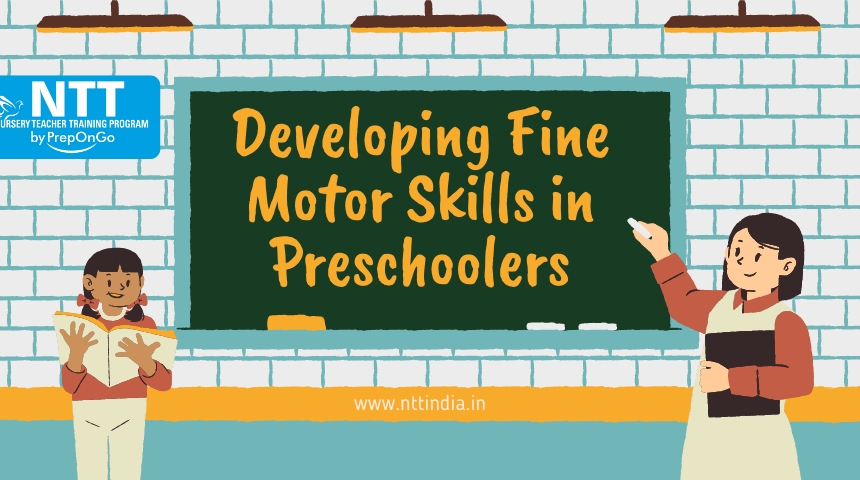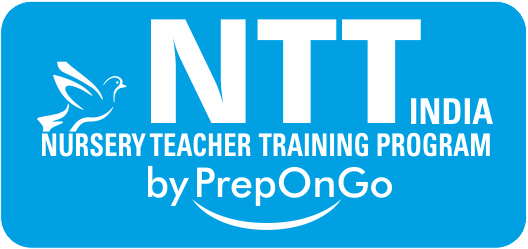Developing Fine Motor Skills in Preschoolers

Developing fine motor skills is a crucial aspect of early childhood education. These skills involve the coordination of small muscles in the hands and fingers, allowing children to perform tasks such as writing, buttoning clothes, and using utensils. In this blog, we will explore simple and effective ways to help preschoolers develop fine motor skills, ensuring their overall growth and readiness for school.
Why Fine Motor Skills Are Important
Fine motor skills are essential for everyday tasks and academic success. They enable children to perform precise movements needed for writing, drawing, and manipulating small objects. Developing these skills early on can enhance a child’s independence and confidence.
Activities to Enhance Fine Motor Skills
Here are some fun and engaging activities that can help preschoolers develop their fine motor skills:
1. Playdough Play
Playing with playdough is an excellent way to strengthen hand muscles. Encourage your child to roll, pinch, and shape the dough. You can also add tools like cookie cutters and rolling pins to make it more fun.
2. Stringing Beads
Stringing beads onto a string or pipe cleaner helps improve hand-eye coordination and precision. Start with larger beads and gradually move to smaller ones as your child’s skills improve.
3. Cutting with Scissors
Using child-safe scissors to cut paper can significantly enhance fine motor skills. Begin with simple straight lines and progress to more complex shapes. Always supervise your child during this activity.
4. Drawing and Coloring
Provide your child with crayons, markers, and coloring books. Drawing and coloring help develop grip strength and control. Encourage your child to color within the lines and draw shapes and patterns.
5. Puzzles
Puzzles are great for developing fine motor skills and problem-solving abilities. Choose puzzles with larger pieces for younger children and gradually introduce more complex puzzles.
6. Buttoning and Zipping
Practicing buttoning and zipping clothes can improve finger dexterity. Use everyday opportunities, like getting dressed, to help your child practice these skills.
7. Building Blocks
Playing with building blocks, such as LEGO, helps improve hand strength and coordination. Encourage your child to build towers, houses, and other structures.
Tips for Encouraging Fine Motor Skill Development
- Make It Fun Ensure that the activities are enjoyable for your child. The more they enjoy the activity, the more likely they are to engage in it willingly.
- Provide a Variety of Materials Offer a range of materials and tools, such as different types of pencils, crayons, and scissors. This variety helps keep the activities interesting and challenging.
- Be Patient and Supportive Praise your child’s efforts and progress, no matter how small. Encouragement can boost their confidence and motivate them to keep trying.
- Incorporate Fine Motor Activities into Daily Routine Integrate fine motor skill activities into your child’s daily routine. Simple tasks like helping with cooking, gardening, or cleaning can be great opportunities for practice.
- Model the Behavior Demonstrate how to perform tasks that require fine motor skills. Children often learn by watching and imitating adults.
Benefits of Developing Fine Motor Skills
By focusing on developing fine motor skills in preschoolers, you help them:
- Improve Hand-Eye Coordination: Essential for tasks such as writing and drawing.
- Enhance Muscle Strength: Necessary for gripping and manipulating objects.
- Boost Confidence and Independence: As children master new skills, they feel more capable and confident.
- Prepare for Academic Success: Fine motor skills are crucial for many school-related tasks, including writing and using tools.
Conclusion
Developing fine motor skills in preschoolers is a vital part of early childhood education. By incorporating fun and engaging activities into your child’s routine, you can help them build the strength and coordination needed for everyday tasks and academic success. Focus on developing fine motor skills in preschoolers to set a strong foundation for their future growth and independence.
Encourage your child to explore, play, and practice regularly, and watch as they develop the fine motor skills necessary for their overall development and readiness for school.
